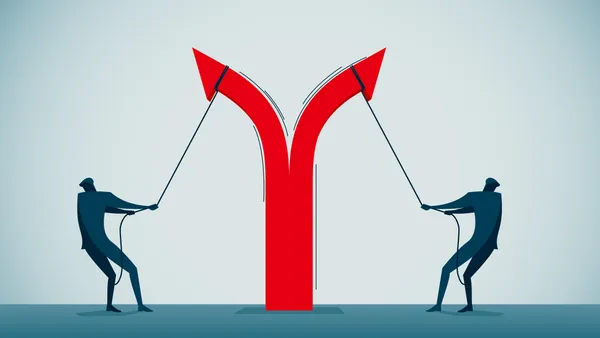The Conference Board’s consumer confidence measure dropped in June to its lowest level in nearly two years, reflecting concerns over escalating trade tensions.
The Consumer Confidence Index declined to 121.5 in June from 131.3 in May, snapping a three-month streak of improvements and missing consensus expectations for a reading of 131.0.
Indices tracking consumers’ assessments of current and future business conditions also fell sharply in June amid mounting friction between the U.S. and some of its major trade partners. A gauge of consumers that looks out toward the next six months dropped to a five-month low of 94.1 from 105.
“The escalation in trade and tariff tensions earlier this month appears to have shaken consumers’ confidence,” Lynn Franco, senior director of economic indicators at The Conference Board, said in a news release.
“Although the index remains at a high level, continued uncertainty could result in further volatility in the index and, at some point, could even begin to diminish consumers’ confidence in the expansion,” she added.
According to MarketWatch, the decline in consumer confidence this month “adds to a mound of evidence showing slower U.S. economic growth and more pessimism about the future.”
“It is a disappointing outcome given that expectations ought to have received a boost from the drop back in gasoline prices and renewed surge in the equity market back to record highs,” Michael Pearce, senior U.S. economist for Capital Economics, wrote in a note.
Ian Shepherdson, chief economist for Pantheon Macroeconomics, suggested, however, that confidence may rebound now that the Trump administration has walked back its threat to impose tariffs on imports from Mexico.
“We’re guessing that the Mexico tariff fiasco … is responsible” for the June drop, he said. “If we’re right, the confidence index will rebound strongly in July, unless the Osaka [G20] summit is a disaster and the president imposes tariffs on imported Chinese consumer goods.”
The Conference Board survey also found that consumers were less upbeat about the current state of the labor market, with those saying jobs are “hard to get” rising from 11.8% to 16.4%.












